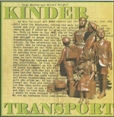| |
|
PESACH (the Bone or Beet): Our Seder plate includes a symbol of the ancient
Passover sacrifice, which was brought each year to the Temple in Jerusalem. The
Hebrew word for sacrifice is korban, which comes from the root meaning “near.”
What could bring you closer to your highest spiritual self?
MATZAH: The Torah tells us that the Israelites had to take the uncooked dough
with them, “for they had prepared no provisions for the way.” Symbolically, the
matzah reminds us that when the opportunity for liberation comes, we must seize
it, even if we do not feel fully prepared -- indeed, if we wait until we feel
prepared, we may never act at all. If you had to jump into such a struggle
tomorrow morning, what would you have to leave behind?
The matzah also stands in contrast to chametz (Hebrew for the expansive yeast
that makes bread rise), which symbolizes false pride, absorption in our
individual egos, and grandiosity.
MAROR (the Bitter Herbs): The suffering of the Jews in Egypt has been matched by
thousands of years in which we were oppressed as a people. Our insistence on
telling the story of liberation and proclaiming that the world could be and
should be fundamentally different has angered ruling elites. These elites often
tried to channel against the Jews the anger that ordinary people were feeling
about the oppression in their own lives. But Jews are not the only ones to have
suffered oppression and violence. We think of the genocide against native
peoples all around the world, including in the United States. We think of the
enslavement of Africans, and the oppression of Armenians, homosexuals, women,
and many others. Yet, tonight it is appropriate for us to focus also on the
suffering of the Jewish people and to affirm our solidarity with victims of
anti-Semitism through the ages. Anti-Semitism still persists in our own time in
the use of double standards in the judgment of Jews, in acts of violence against
Jews, and in refusing to acknowledge the history of Jewish suffering as equal to
the suffering of other victims of oppressive social regimes in Christian,
Islamic, and some secular societies, as well. Meanwhile, we Jews need to
acknowledge the ways that this suffering has at times distorted our
consciousness and made it hard to fully grasp the pain others feel. We must
evolve a Global Judaism that compassionately embraces the Jewish people and all
other peoples. |
|
|




 Bottom
Bottom













 Printer
friendly page
Printer
friendly page